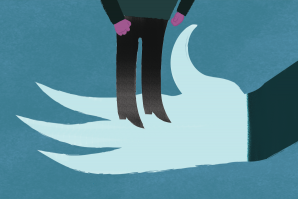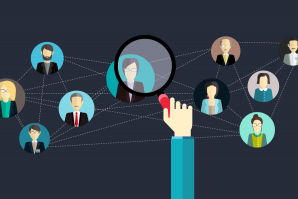
This Time, It’s Personnel
Will legislation to protect employees from workplace bullying stifle demanding managers?
Carrie Clark, a former teacher, says bullies aren’t confined to playgrounds. Sometimes, they run the whole school. And they do more than demand that work get done. They threaten, humiliate or intimidate for reasons unrelated to job performance.

Avoiding the Push Over
How to make an anti-bullying policy work
The Society for Human Resource Management has developed a model procedure for handling bullying complaints. Key language includes:

Patent Problems: Who Owns the Idea?
Know who your inventors are before you file
I have been working on a new piece of light industrial equipment for several years but had trouble with a certain aspect. I mentioned it to a colleague, who had a great idea that I was able to use. I am getting ready to patent my invention, and this colleague is now arguing that he is the co-inventor and entitled to the patent and future proceeds of the sale or use of this patent!

Get Up
Our tax system should make upward mobility possible for all
California has long been known as the land of opportunity, but for too many residents, opportunity is receding. Inequality continues to rise even though California has one of the most progressive tax structures in the nation. Something more is needed.

The Down-Low
The Upward Mobility Act is anything but
Senate Bill 8 — the Upward Mobility Act — is one piece of legislation that has reared its ugly head and poses a real threat to small-business owners in California.

The Next Wave
10 young professionals on our radar for 2015
Momentum is shifting in the Capital Region, and young professionals are leading the charge. General skepticism is being replaced with emerging optimism and a renewed energy that’s providing the catalyst for growth and innovation across our cities. Here are the top ten young leaders we think you should be watching. They are driving the Capital Region’s evolution, and we anticipate you’ll see them at the forefront in 2015 and decades to come.

Jobs, Schools & Women — Oh My
Does Assembly Minority Leader Kristin Olsen, one of the youngest legislative leaders in the country, have the experience to drive GOP change?
Newly minted Assembly Minority Leader Kristin Olsen has developed a well-earned reputation around the Capitol as a woman on the move.

Assembly Republican Leader Kristin Olsen and ADA Reform
Lawmakers address predatory lawsuits stemming from new legislation
Almost three decades after the implementation of the federal Americans with Disabilities Act, many California companies are embroiled in lawsuits or out of business altogether. With that in mind, Assembly Republican Leader Kristin Olsen has made ADA reform a pillar of her legislative agenda.

Social Digging
Where is the legal line when it comes to using social media to evaluate job candidates?
We’re hiring a new office manager and looking for someone trustworthy and friendly. Going through applications, we found that some of the hiring staff were able to view applicants’ Facebook profiles, either due to mutual friends or because of the applicant’s privacy settings. Are there any legal reasons not to do this? Can we raise questions during interviews based on the information we’ve learned via social media?

We Need to Leave Prop. 13 Alone
Raising property taxes will mean death for small business
California’s business climate is well-known for being unfriendly. CEO Magazine has rated California as the worst state in which to do business for more than eight years running. Undoing Proposition 13’s provisions, as is currently being proposed, will make a big problem even worse by increasing taxes on the very businesses that create jobs and contribute to our economy.


